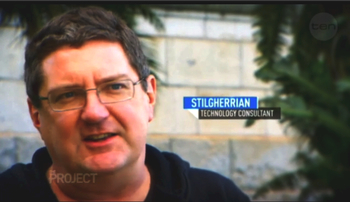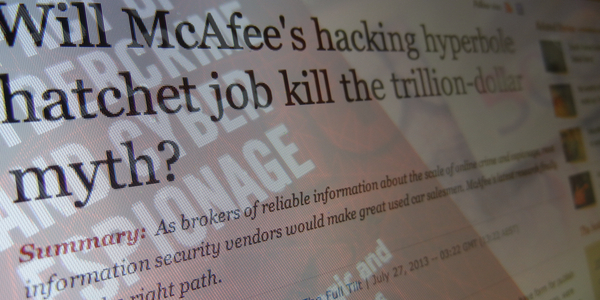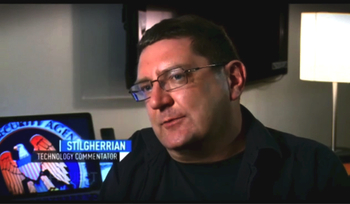 “It’s not every day that I find myself agreeing with Senator Eric Abetz,” began my column at ZDNet Australia yesterday. But as the remainder of my 89-word opening sentence reveals, we’re in agreement over just one word: Orwellian.
“It’s not every day that I find myself agreeing with Senator Eric Abetz,” began my column at ZDNet Australia yesterday. But as the remainder of my 89-word opening sentence reveals, we’re in agreement over just one word: Orwellian.
My concerns were about the data being collected by the ABC’s Vote Compass project, and what it might end up being used for somewhere down the track.
You should probably read the full article for the nuances of what I’m on about, but here’s a taste.
Vote Compass may remove personally identifiable information (PII) from its data before sharing it, but it’d be an easy task for a third-party researcher to re-identify users by cross-matching Vote Compass’ data with their existing databases.
“Scientists have demonstrated they can often ‘re-identify’ or ‘de-anonymise’ individuals hidden in anonymised data with astonishing ease,” wrote law professor Paul Ohm of the University of Colorado in 2009. It’s become easier since, for everyone from Google, Twitter, and Facebook to all the less well-known data mining companies on the planet…
The Orwellian scenario implicit in all this is that secretive data mining companies could match your political beliefs with the psychology of how you make decisions (gleaned from that “What breed of dog are you?” questionnaire you filled out five years ago) and use that to generate (through your favourite news site) a selection of persuasive news stories, opinion pieces, and advertising designed just for you — and you’d never know.
Well this piqued the interest of ABC 666 Canberra, and earlier this morning I was interviewed by presenter Genevieve Jacobs along with the creator of Vote Compass, Cliff van der Linden.
Here’s the audio — and my apologies for it being cut abruptly at the end. Finger trouble on my part. Ms Jacobs was saying that the ABC is satisfied with the precautions being taken by Vote Compass, and I must stress that I have no direct issue with their work either.
Podcast: Play in new window | Download (Duration: 12:13 — 5.3MB)
The audio is of course ©2013 Australian Broadcasting Corporation.
The article I mention is How Companies Learn Your Secrets by Charles Duhigg of The New York Times.
 Earlier this morning I took part in a conversation on ABC Radio National’s Sunday Extra about the future of politics and political campaigning, given new media technologies and suchlike.
Earlier this morning I took part in a conversation on ABC Radio National’s Sunday Extra about the future of politics and political campaigning, given new media technologies and suchlike.
 I am continually intrigued by the choices of stories that I end up talking about on Channel TEN’s The Project — like bouncing off the release of a
I am continually intrigued by the choices of stories that I end up talking about on Channel TEN’s The Project — like bouncing off the release of a 
 The revelation that the US National Security Agency (NSA) was engaged in such comprehensive spying of American citizens and their allies, some of it possibly unconstitutional, continues to make headlines.
The revelation that the US National Security Agency (NSA) was engaged in such comprehensive spying of American citizens and their allies, some of it possibly unconstitutional, continues to make headlines.